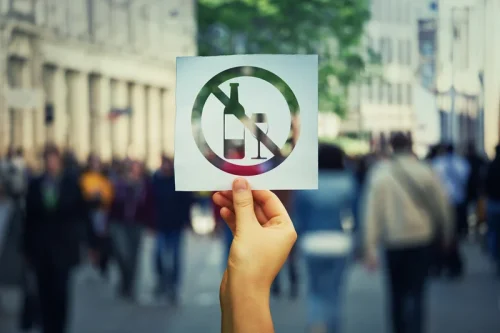
These include the duration and intensity of alcohol use, genetic factors, the use of other medications, your overall health and the presence of co-occurring mental health conditions. Understanding these factors is key to addressing the root cause of the shakes and developing an effective treatment plan. Proper hydration plays a vital role in managing alcohol shakes and withdrawal symptoms effectively.

Why You Feel Anxious the Day After Drinking, Written By a Neurologist
The 4 C’s of Addiction—Compulsion, Craving, Consequences, and Control—help explain the cycle of addiction. At New Chapter Faith Recovery, we provide compassionate, faith-based support to help individuals regain control and break free from substance use. This type of tremor typically involves rhythmic shaking in the hands, trouble writing or drawing, difficulty using utensils, a shaky voice, and more symptoms.
What is Alcohol Withdrawal?
- The more people in your personal network that you trust to support your journey, the more likely you are to be successful.
- Securing a successful, long-term recovery from alcohol dependency involves committing to an effective treatment program and making lifestyle changes that promote physical and mental health, maintaining sobriety.
- When someone who has been drinking heavily stops consuming alcohol, their body, which has adjusted to the presence of alcohol, suddenly finds itself out of balance, leading to these tremors.
- Some medications that can be used to treat alcohol shakes include anti-anxiety medications, anti-seizure medications, and muscle relaxants.
- The only way to stop the problem is by abstaining from alcohol, then digging deeper to ensure no permanent damage has been done.
Treatment options may include cognitive-behavioral therapy, medication-assisted treatment, and participation in peer support programs like Alcoholics Anonymous. Alcohol shakes, also known as tremors, are a common and distressing symptom experienced by individuals who suddenly stop or significantly reduce their alcohol intake after a period of heavy drinking. These shakes occur as the body, which has become accustomed to the depressant effects of alcohol, tries to adjust to the absence of the substance.
Understanding the Body’s Response to Alcohol
When alcohol is removed, the brain continues to deliver increased nerve activity, leading to a range of withdrawal symptoms, including tremors, anxiety, and agitation. In more serious cases, medications such as benzodiazepines may be prescribed to manage alcohol withdrawal symptoms. These medications can effectively reduce the severity of alcohol shakes and help alleviate anxiety. Always consult a healthcare provider to determine the best course of action.

Do NOT Drink More Alcohol To Fix Your Shakes
- If you or someone you know is experiencing alcohol shakes, seek medical advice from a qualified healthcare provider.
- Still, alcohol shakes can be a warning sign that something more than just an overstimulation of the CNS is occurring.
- How you stop alcoholic shakes is going to depend heavily on why the shakes are happening.
- Alcohol is a depressant, meaning it works to suppress the CNS (central nervous system) and lower brain activity.
- As we talked about above, consuming too much alcohol has a very dehydrating effect on your body, and your nervous system tries to start recovering balance as the alcohol wears off.
- Staying hydrated throughout detox helps flush toxins from your body, which may lessen shakes, as well as relieve other withdrawal symptoms.
- Getting professional help for managing anxiety and depression can also substantially improve your quality of life.
Some studies suggest that people who have underlying depression or anxiety disorders might be more likely to experience anxiety during hangovers. However, these results are inconsistent, and other factors may be involved. After drinking too much alcohol, you may experience “hangover shakes.” These shakes can make you feel unsteady and weak all day. Nonetheless, alcohol tremors are not solely a result of regular alcohol use. For women, binge drinking is classified as consuming four or more drinks in a single sitting, while for men, it is five or more.

Get Professional Help
Unfortunately, there is no miracle pill or medication that cures alcohol shakes. The shaking in itself is indicative of a bigger problem, one that needs to be addressed immediately. To that end, alcohol shakes are not interchangeable with delirium tremens but can be a subset symptom. Still, alcohol shakes can be a warning sign that something more than just an overstimulation of the CNS is occurring.

Are Tremors Dangerous?
We must note that alcohol can damage the brain how to get rid of shakes from alcohol and sympathetic nervous system to the point that alcohol shakes become chronic. If you are experiencing a shaking that’s somewhere between moderate and severe, it’s imperative that you quit drinking. Being that the shakiness is a sign that the central nervous system is impaired—and given the nature of withdrawal symptoms from alcohol—detox will be executed under strict medical supervision.
Rest and Stress Management Techniques
Alcohol withdrawal symptoms occur as the body adjusts to a sudden decline in the chemicals that are components of alcohol. Additionally, as alcohol is broken down and removed from the body, certain chemical Sober living house toxins produce inflammation and oxidative stress. Before moving forward, it is essential to know the safe ways to detox from alcohol with professional help.

